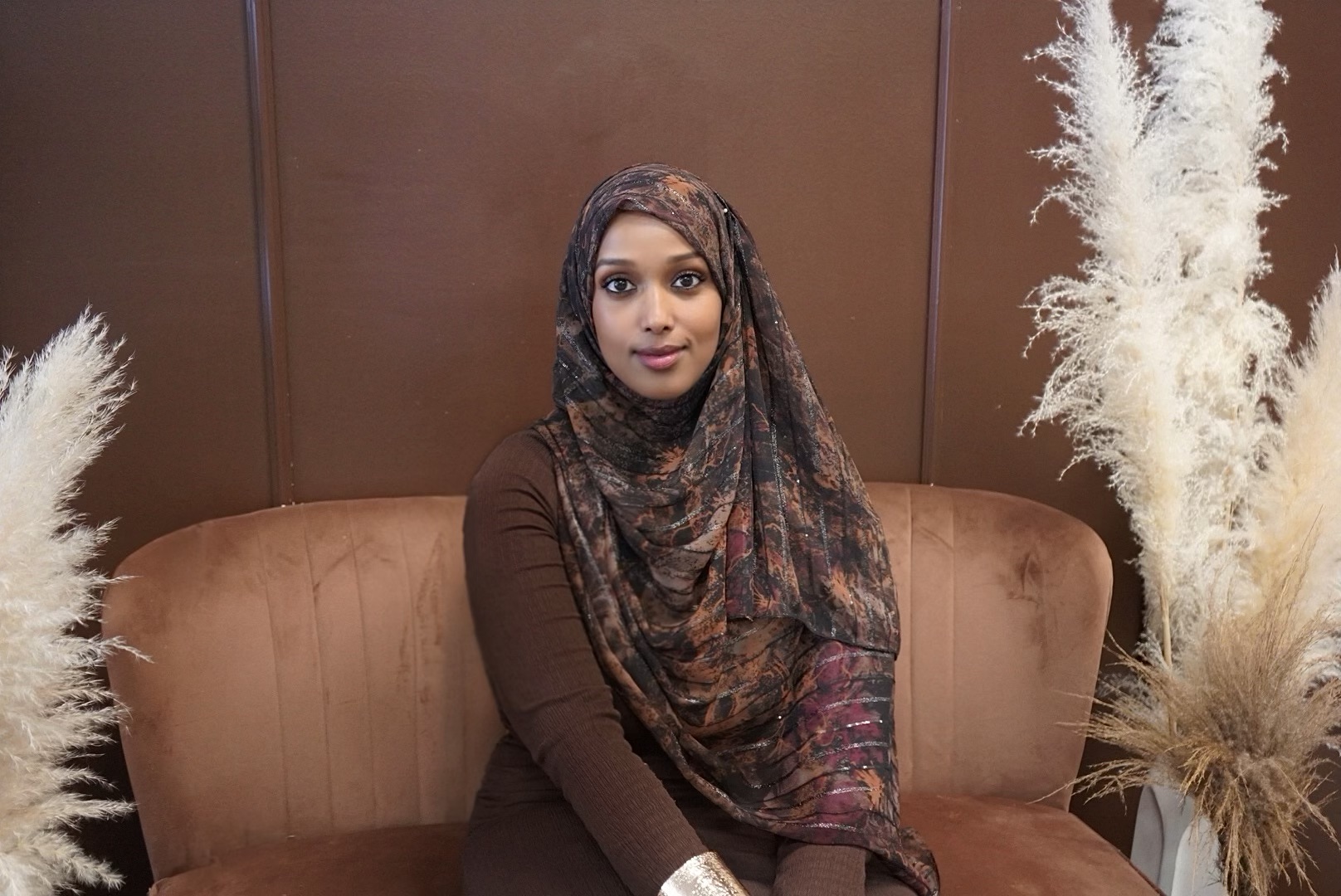We recently connected with Sirai Farah and have shared our conversation below.
Sirai, so great to be with you and I think a lot of folks are going to benefit from hearing your story and lessons and wisdom. Imposter Syndrome is something that we know how words to describe, but it’s something that has held people back forever and so we’re really interested to hear about your story and how you overcame imposter syndrome.
For someone who stumbled into entrepreneurship by accident, imposter syndrome was something I felt often! Even when my results were proving otherwise. In the early days, every new level brought a sense of “do I really belong here?”
What helped me overcome it was learning to focus on the facts instead of the fears. The numbers, the impact, the feedback from others doing big things in this space. Those were tangible proof that I was capable. I also surrounded myself with mentors and peers who reminded me that growth always feels uncomfortable at first.
Over time, I reframed imposter syndrome as a sign I was stepping into bigger arenas, not that I was unqualified. Now, when it shows up, I see it as proof I’m evolving and I lean in instead of pulling back.

 Thanks for sharing that. So, before we get any further into our conversation, can you tell our readers a bit about yourself and what you’re working on?
Thanks for sharing that. So, before we get any further into our conversation, can you tell our readers a bit about yourself and what you’re working on?
I migrated from Somalia to the U.S. with my mother and siblings after losing my father when I was just 10 years old. Like many immigrant families, education was at the forefront of our lives. I followed that path because in my culture, that’s what you do.
In Somali culture, it’s also uncommon for women to move away from home unless they’re married. But deep down, I knew I needed to step out of my comfort zone to find myself. In 2017, I convinced my mom to let me move two hours away from our home in Columbus to attend college in Cleveland, Ohio framing it as an academic opportunity. It turned out to be one of the best decisions I’ve ever made.
At first, the transition was rough. My plan had always been to become a doctor, but during my time in school, I realized that path wasn’t truly for me. Eventually, I made the bold decision to drop out keeping it from my family for six months and started working in recruiting and HR.
Then in 2020, a friend handed me a book on wholesaling real estate, and everything changed. I dove in headfirst, building a successful business sourcing off-market deals, negotiating contracts, and selling them to investors. The business took off quickly it was exciting, fast-paced, and profitable but I soon realized it was purely transactional. I wasn’t building any generational wealth for myself.
That’s when I stumbled upon multifamily real estate. I went all in, and within a year, I had acquired a few hundred units. On paper, it looked like success but something was missing. In my faith, using interest or leverage is prohibited, yet nearly every deal in the industry relied on both. I couldn’t ignore that conflict.
So, I made a decision that would change everything. I sold my ownership in those leveraged deals and committed to creating a real estate model that aligned with my values. That’s how DeenVest Capital was born a 100% halal, debt-free real estate fund that acquires large multifamily properties all cash.
Today, what excites me most about my work is that it’s not just about building wealth it’s about rewriting the rules. In an industry dominated by leverage and interest, we’ve proven there’s a way to invest that’s both ethical and stable. Our model resonates with both Muslim and non-Muslim investors who want to grow their portfolios without compromising their values.
This year is especially exciting we’ve just launched our fund, with a goal to raise $40M and acquire our first asset by November 2025. And beyond financial returns, we’re committed to impact: a portion of our profits goes to the Alyatim Foundation, our nonprofit dedicated to supporting orphans worldwide.
Looking back, what do you think were the three qualities, skills, or areas of knowledge that were most impactful in your journey? What advice do you have for folks who are early in their journey in terms of how they can best develop or improve on these?
Resourcefulness was key because I didn’t start with a blueprint or a network in real estate. I had to learn how to find answers, connect the dots, and figure things out quickly whether that meant reading every book I could get my hands on, cold calling property owners, or reverse engineering how successful people operated.
Resilience kept me moving forward when things got tough and they always do. Deals fall through, markets shift, people doubt you. Being able to bounce back, adapt, and keep going even when you feel out of your depth is what separates those who quit from those who break through.
Relationship building turned opportunities into reality. The right people can open doors you didn’t even know existed, but those relationships have to be genuine. I’ve found that leading with value, being consistent, and following through on your word builds trust faster than any sales pitch.
For anyone early in their journey, my advice is:
Be curious and proactive don’t wait for someone to hand you the answers.
Get comfortable being uncomfortable growth happens in those moments where you feel stretched.
Invest in people as much as you invest in your skills your network will often be your biggest asset.
We’ve all got limited resources, time, energy, focus etc – so if you had to choose between going all in on your strengths or working on areas where you aren’t as strong, what would you choose?
I believe you should double down on your strengths but be aware enough of your weaknesses to either improve them to a functional level or bring in people who complement you.
When I first got into real estate, I was naturally strong in negotiation, networking, and vision casting. Those skills moved the needle fast, so I leaned into them hard. But there were areas like underwriting, systems, creating processes` where I wasn’t as strong. Early on, I tried to master everything, and it slowed me down because I was spreading my energy too thin.
The real breakthrough came when I focused on what I did best and partnered with people who excelled in the areas I didn’t.
In my experience, your strengths are where your biggest opportunities and your competitive edge. If you water them down by trying to be “good at everything,” you risk becoming average across the board. Instead, go all in on your strengths and build a team or systems to cover your weaknesses. That’s where momentum and scale really happen.
Contact Info:
- Website: https://www.deenvestcapital.com
- Instagram: https://www.instagram.com/siraifarah
- Linkedin: https://www.linkedin.com/in/siraifarah/
- Youtube: https://www.youtube.com/@SiraiFarah
so if you or someone you know deserves recognition please let us know here.




